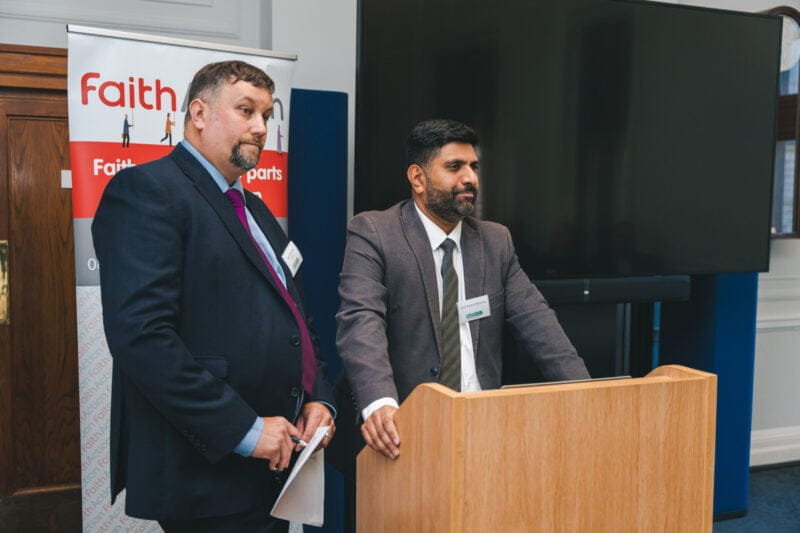Red Sky at Night…

 Everyone is looking for signs of what impact the new government will have on their work, perhaps none more so than the voluntary sector and the faith organisations within it.
Everyone is looking for signs of what impact the new government will have on their work, perhaps none more so than the voluntary sector and the faith organisations within it.
One early pre-election indicator was in a speech by Sir Keir Starmer where he set out his vision for partnership working with civil society, specifically mentioning faith groups:
… civil society and faith groups play a unique and vital role
Going on to note in particular that civil society and faith groups are:
…people with skin in the game, who understand the problems best and have the best answers.
He announced it was time for change, offering a seat at the table for:
...anyone who wants to make our national life better‘… 'we want you to push new ideas on policies…
A Labour government will ensure strong partnerships with faith communities ...
Sir Keir reiterated his views in a letter to faith leaders saying he was ‘deeply moved’ by the contribution of faith organisations, recognising the ‘depths of belief and devotion that drive your commitment to social justice and social action’ and that a Labour government would ‘ensure strong partnerships with faith communities’.
Faith organisations should be encouraged and emboldened by these statements as well as by initiatives already underway: for example FaithAction’s FaithinPartnership Week and the Churchworks Commission.
But look out for the small print ...
It’s important to be alert for any caveats to meaningful partnerships between equals. For example, Sir Keir spoke of engaging ‘faith-based organisations in the delivery of our 5 missions’ which seems at odds with his request for Civil Society to ‘push new ideas on policies’.
So, will faith-based organisations be at the policy making table, or merely Deliveroo drivers for government ideas?
Red sky at morning – new dawn, or shepherd’s warning?
So what has happened since the election?
Encouragingly, Sir Keir has met his pre-election commitment to appoint a government minister, Lord Khan, to lead on engagement with faith communities.
Similarly, he has announced plans for a ‘fundamental reset’ of the Government’s relationship with Civil Society, and Culture Secretary Lisa Nandy described this as a ‘new era’ of partnership working where Civil Society groups would be restored to the centre of national life, beginning with a consultation organised by NCVO to develop a Civil Society Covenant.

FaithAction event in Westminster
Slip of the tongue?
While it’s heartening that a pre-election pledge is being fulfilled, faith organisations are not specifically mentioned in the consultation or the Government announcement as they were in the pre-election speeches. Is this just a ‘slip of the tongue’, or does it indicate that faith groups need to redouble their efforts to articulate their unique contribution?
As the Bishop of Manchester said, ‘We’re not the fancy dress division of the voluntary sector’.
There’s much to encourage, but faith organisations must stay alert to avoid being subsumed into a broader civil society ‘bucket’ where their distinctive contribution is not seen. Participating in the consultation would be a good place to make your voice heard.
Participate in the NCVO Consultation

Guest author Pat Finlow writes about the intersection of faith and social change, especially in the field of humanitarianism and international development.
Her current focus concerns the importance of ensuring faith organisations are ‘in the room where it happens‘ as communities, at home and overseas rebuild after the pandemic.


